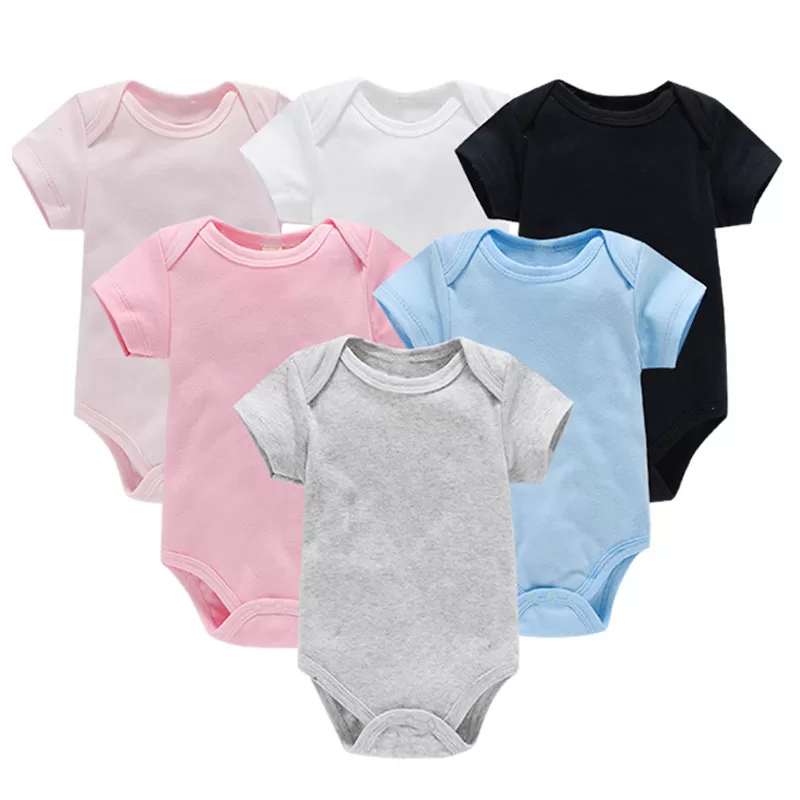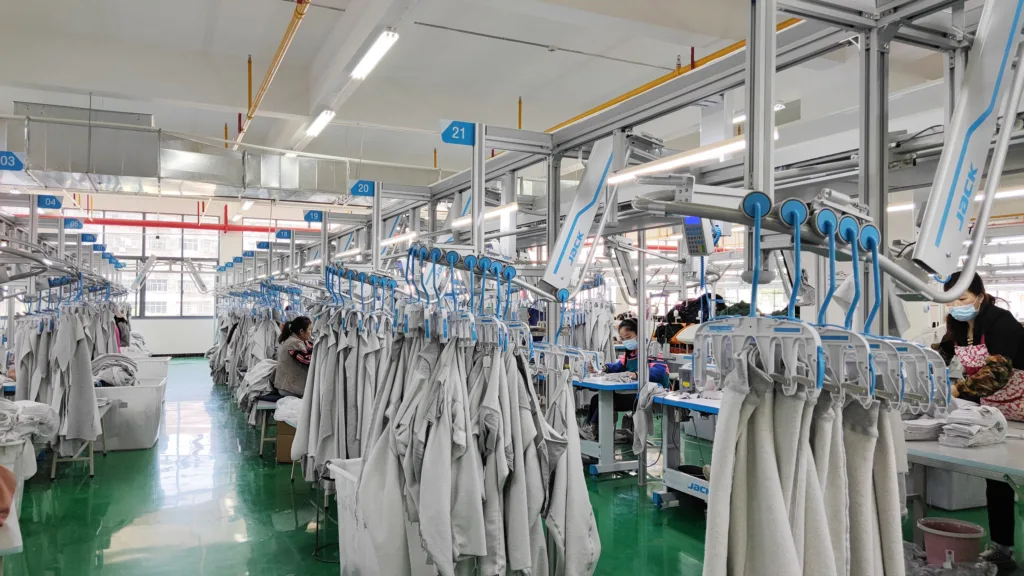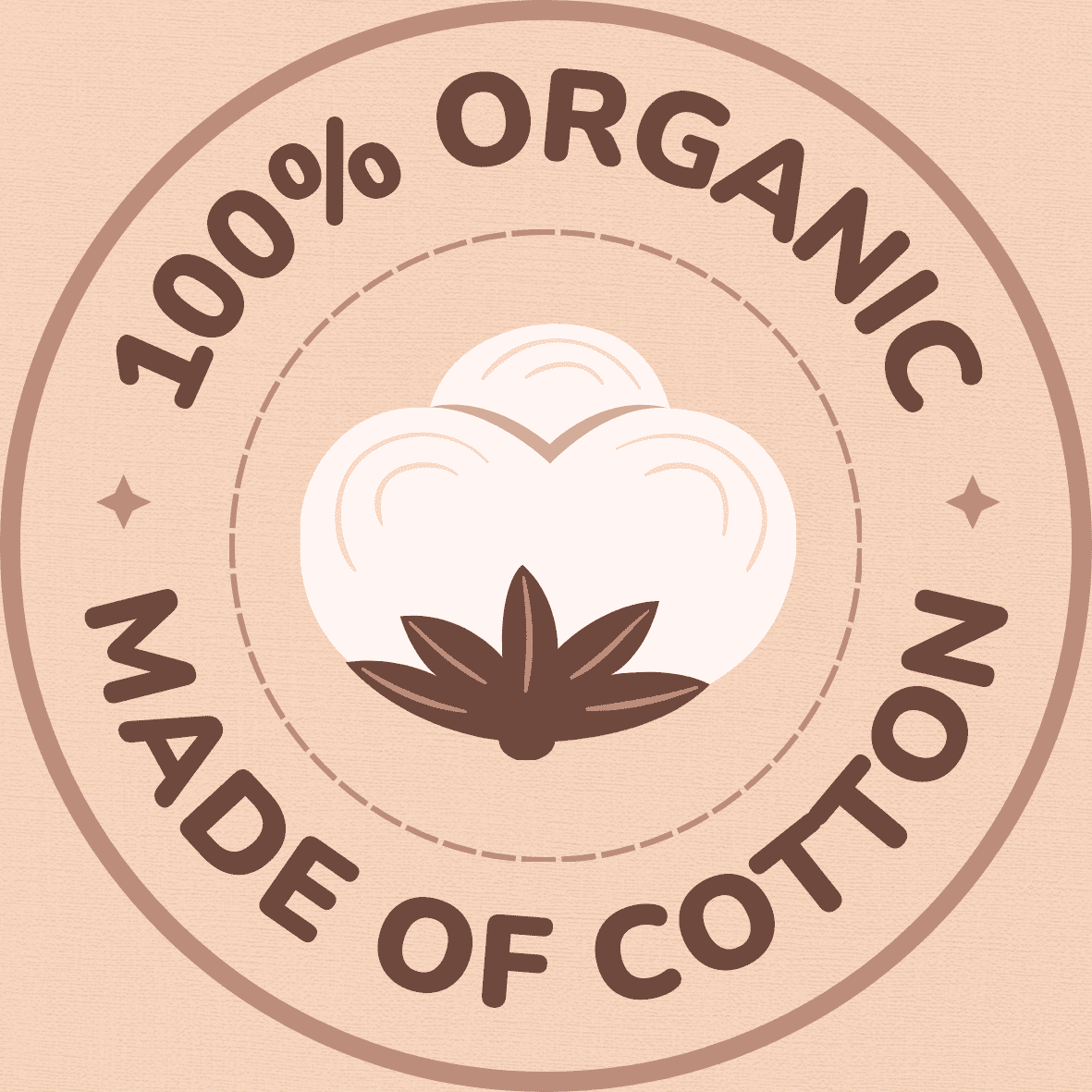Discover organic cotton clothing manufacturers committed to sustainable practices, offering eco-friendly fashion choices.
The Growing Popularity of Organic Cotton Clothing: Exploring the Shift towards Sustainable Comfort
In recent years, there has been a noticeable surge in the popularity of organic cotton clothing. As consumers become more conscious of the environmental impact of their fashion choices, organic cotton has emerged as a sustainable alternative to conventional cotton. Organic cotton clothing manufacturers have played a crucial role in driving this shift towards sustainable comfort.
With a commitment to ethical and eco-friendly practices, organic cotton clothing manufacturers prioritize the use of organic cotton in their production processes. By opting for organic cotton, these manufacturers eliminate the harmful effects of pesticides and synthetic fertilizers commonly associated with conventional cotton farming. This decision not only benefits the environment but also ensures that the garments are free from harmful chemical residues, offering consumers clothing that is both comfortable and safe. As awareness grows about the importance of sustainable fashion, the demand for organic cotton clothing continues to rise, leading to an increase in the number of manufacturers dedicated to producing high-quality, eco-friendly clothing options.
• Organic cotton clothing manufacturers prioritize the use of organic cotton in their production processes.
• By opting for organic cotton, these manufacturers eliminate the harmful effects of pesticides and synthetic fertilizers commonly associated with conventional cotton farming.
• The decision to use organic cotton benefits the environment by reducing chemical pollution and promoting biodiversity.
• Organic cotton garments are free from harmful chemical residues, offering consumers clothing that is both comfortable and safe.
• The growing awareness about sustainable fashion has led to an increase in demand for organic cotton clothing.
• This increased demand has resulted in a rise in the number of manufacturers dedicated to producing high-quality, eco-friendly clothing options.
The Environmental Impact of Conventional Cotton Production: Why Organic Cotton Matters

The environmental impact of conventional cotton production is a cause for concern, highlighting the need for a shift towards organic cotton. Unlike conventional cotton cultivation, which heavily relies on synthetic fertilizers, pesticides, and genetically modified seeds, organic cotton is grown using sustainable agricultural methods. This significantly reduces the negative impact on the environment, including soil degradation, water pollution, and biodiversity loss. By supporting sustainable clothing manufacturers for small businesses that utilize organic cotton, consumers can contribute to a more eco-friendly and responsible fashion industry.
Organic cotton matters because it offers a viable solution to the environmental challenges posed by conventional cotton production. By cultivating cotton without the use of harmful chemicals, organic farming promotes soil fertility, conserves water resources, and preserves ecosystems. Additionally, organic cotton farming practices contribute to the reduction of greenhouse gas emissions, which is crucial in combating climate change. Supporting sustainable clothing manufacturers for small businesses that prioritize organic cotton not only promotes a healthier planet, but also helps to create a more sustainable and resilient fashion industry for the future.
Promoting Fair Trade Practices: How Organic Cotton Clothing Manufacturers are Making a Difference
Promoting fair trade practices is a key priority for organic cotton clothing manufacturers. These manufacturers, including private label organic clothing manufacturers, understand the importance of ensuring ethical sourcing and production methods. They are making a difference by actively engaging in fair trade initiatives that aim to improve the livelihoods of cotton farmers and workers in the supply chain.
By partnering with fair trade organizations and adhering to fair trade standards, organic cotton clothing manufacturers are paving the way for sustainable and equitable industry practices. They work closely with farmers to provide fair wages, safe working conditions, and access to education and healthcare. In addition, they support community development projects that empower local communities and promote social well-being. Through their dedication to fair trade practices, these manufacturers are driving positive change in the industry and setting an example for others to follow.
Innovations in Organic Cotton Farming: Pioneering Sustainable Agriculture Methods
Organic cotton farming has witnessed a surge in innovative methods, as organic clothing manufacturers in the USA aim to pioneer sustainable agriculture practices. These pioneers recognize the importance of reducing environmental impact while maintaining the quality and yield of cotton crops. Through extensive research and development, they have successfully implemented techniques that promote soil health, conserve water, and minimize the use of synthetic inputs.
One such innovation is the adoption of regenerative farming practices. Organic cotton farmers now focus on building resilient soil ecosystems that support long-term crop health. By incorporating cover crops, crop rotations, and composting, they can improve soil fertility, enhance carbon sequestration, and reduce the need for synthetic fertilizers. These measures not only benefit the environment but also contribute to the overall sustainability of the organic cotton industry. Additionally, precision irrigation techniques have been deployed to optimize water usage and minimize waste, ensuring that every drop counts in the cultivation of organic cotton. These pioneering methods reflect the commitment of organic clothing manufacturers in the USA to revolutionize cotton farming for a greener and more sustainable future.
Organic Cotton Certification: Ensuring Quality and Transparency in the Industry

Organic cotton certification plays a crucial role in ensuring the quality and transparency of the organic cotton industry. With the rising demand for organic clothing, it becomes imperative for consumers to have reliable assurance that the products they purchase are genuinely organic. Certification bodies, such as the Global Organic Textile Standard (GOTS) or the Organic Content Standard (OCS), work closely with organic clothing companies to ensure that their products meet stringent organic production criteria.
Through rigorous inspections and audits, these certification bodies assess every step of the supply chain, from cotton cultivation to garment manufacturing. They require organic clothing companies to use only non-GMO seeds, cultivate cotton without synthetic fertilizers or pesticides, and implement environmentally-friendly cultivation practices. Additionally, certification bodies enforce traceability requirements, ensuring that organic cotton can be properly tracked from farm to finished product. This level of scrutiny ensures that organic clothing companies maintain transparency and accountability, giving consumers confidence in their purchasing decisions.
Ethical Manufacturing Processes: How Organic Cotton Clothing Manufacturers Prioritize Worker Welfare
Organic cotton clothing manufacturers have placed a significant emphasis on ethical manufacturing processes, particularly when it comes to prioritizing worker welfare. This has become increasingly important as consumers become more aware of the impact their clothing choices have on the environment and the people involved in its production.
To ensure that workers are treated fairly and their rights are upheld, organic cotton clothing manufacturers have established strict guidelines and codes of conduct. These include safe working conditions, fair wages, and reasonable working hours. In addition, they often provide training and educational opportunities to empower their workers and promote personal growth. By prioritizing worker welfare, organic cotton clothing manufacturers are not only producing high-quality and comfortable clothing, but they are also contributing to a more sustainable and socially responsible fashion industry.
The Benefits of Organic Cotton Clothing: Health, Comfort, and Durability
As the demand for sustainable fashion continues to rise, more and more people are turning to organic cotton clothing for its numerous benefits. One of the most significant advantages of choosing organic cotton clothing is its positive impact on health. Conventional cotton production involves the use of synthetic fertilizers and pesticides, which can leave residues on the fabric and potentially cause skin irritations and allergies. In contrast, organic cotton is grown without the use of harmful chemicals, making it a safe and healthy choice for those with sensitive skin or allergies. Organic cotton clothing stores are now offering a wide range of options for individuals seeking comfortable and non-toxic alternatives to traditional clothing.
In addition to its health benefits, organic cotton clothing also offers superior comfort and durability. The fibers in organic cotton are softer and more breathable compared to those in conventional cotton, providing a comfortable and luxurious feel against the skin. This makes organic cotton garments ideal for people with sensitive or easily irritated skin. Furthermore, the use of natural and non-chemical cultivation methods enhances the strength and longevity of the cotton fibers, resulting in clothing that is more durable and capable of withstanding regular wear and washing. With the availability of organic cotton clothing stores, consumers can now enjoy the combined benefits of health, comfort, and durability in their sustainable fashion choices.
Sustainable Fashion Trends: Embracing Organic Cotton as a Style Statement
In recent years, there has been a significant shift in the fashion industry towards sustainability, with organic cotton emerging as a key component of this movement. Clothing brands that use organic cotton have gained popularity for their commitment to environmental and social responsibility. Organic cotton is grown without the use of synthetic pesticides or fertilizers, making it a healthier and more sustainable alternative to conventional cotton.
Consumers are increasingly seeking out clothing brands that embrace organic cotton as a style statement. Not only does this choice support sustainable and ethical practices, but it also allows individuals to make a positive impact on the environment and garment workers’ well-being. With the rise of sustainable fashion trends, more and more people are recognizing that organic cotton clothing offers not only comfort and durability but also a way to express their values and contribute to a greener future.
Collaborations and Partnerships: Organic Cotton Clothing Manufacturers Joining Forces for Positive Change
Collaborations and partnerships play a crucial role in propelling positive change within the organic cotton clothing industry. In the UK, organic cotton clothing manufacturers have recognized the need for collective action in order to create a more sustainable and ethical fashion landscape. By joining forces, these manufacturers are able to combine their expertise, resources, and influence to drive meaningful transformations.
These collaborations and partnerships enable organic cotton clothing manufacturers in the UK to share knowledge and best practices, identify innovative solutions, and collectively advocate for greater sustainability and ethical standards across the industry. By pooling their resources, they can also invest in research and development to improve farming techniques, manufacturing processes, and supply chain transparency. Together, they are able to amplify their impact and create a stronger voice for change, inspiring other industry stakeholders to follow suit. Through their united efforts, organic cotton clothing manufacturers in the UK are actively shaping a future where sustainable fashion is the norm, benefitting both the environment and the communities involved in the production process.
Consumer Empowerment: How Your Choices Can Support Organic Cotton Clothing Manufacturers and Drive Sustainable Change
Organic cotton clothing has gained significant popularity in recent years, with consumers becoming increasingly aware of the environmental and social impact of their choices. By opting for organic cotton clothing, consumers have the power to support ethical and sustainable practices in the fashion industry. By choosing to purchase organic cotton clothing, consumers are not only prioritizing their own health and comfort but also actively contributing towards a positive change in the industry.
When consumers choose organic cotton clothing, they are directly supporting manufacturers who prioritize worker welfare and promote fair trade practices. This empowers workers in the supply chain, ensuring that they are paid fair wages and provided safe working conditions. Additionally, organic cotton farms embrace sustainable agricultural methods, reducing the use of harmful pesticides and conserving water resources. By making conscious choices as consumers, we can drive sustainable change and encourage more manufacturers to embrace organic cotton, ultimately leading to a more ethical and environmentally friendly fashion industry.
What is organic cotton clothing?
Organic cotton clothing refers to garments that are made from cotton that has been grown without the use of synthetic pesticides, fertilizers, or genetically modified organisms (GMOs). It is produced using sustainable farming methods that prioritize environmental conservation and worker welfare.
Why is organic cotton clothing becoming more popular?
Organic cotton clothing is gaining popularity due to the growing awareness about the negative environmental and health impacts of conventional cotton production. Consumers are increasingly seeking out sustainable and ethically produced clothing options, and organic cotton fits these criteria.
What is the environmental impact of conventional cotton production?
Conventional cotton production involves the heavy use of synthetic pesticides and fertilizers, which can contaminate soil, water, and air, harming ecosystems and human health. Additionally, conventional cotton farming requires significant amounts of water, contributing to water scarcity.
How does organic cotton production benefit the environment?
Organic cotton production uses natural fertilizers and pest control methods, reducing chemical pollution and preserving biodiversity. It also requires less water compared to conventional cotton farming, conserving this valuable resource.
What are fair trade practices in the organic cotton clothing industry?
Fair trade practices in the organic cotton clothing industry ensure that farmers and workers are paid fair wages, have safe working conditions, and are not exploited. It promotes social sustainability and helps uplift communities.
What are some innovative sustainable agriculture methods used in organic cotton farming?
Organic cotton farming utilizes methods such as crop rotation, composting, and biological pest control to promote soil health and fertility. It focuses on preserving the natural ecosystem and biodiversity, reducing the need for synthetic inputs.
How can consumers ensure the quality and transparency of organic cotton clothing?
Consumers can look for products that have been certified by reputable organic certification organizations, such as GOTS (Global Organic Textile Standard). These certifications guarantee that the clothing has met strict standards for organic production and processing.
How do organic cotton clothing manufacturers prioritize worker welfare?
Organic cotton clothing manufacturers prioritize worker welfare by ensuring fair wages, safe working conditions, and prohibiting child labor. They often establish partnerships and collaborations with local communities to support social development.
What are the benefits of wearing organic cotton clothing?
Organic cotton clothing offers several benefits, including being hypoallergenic, soft, and comfortable. It is also known for its durability, as organic fibers are less prone to breakage and wear.
How can consumers support organic cotton clothing manufacturers and drive sustainable change?
Consumers can support organic cotton clothing manufacturers by consciously choosing to purchase organic cotton garments. By doing so, they create demand for sustainable products, encouraging more brands to adopt organic practices and driving positive change in the fashion industry.




